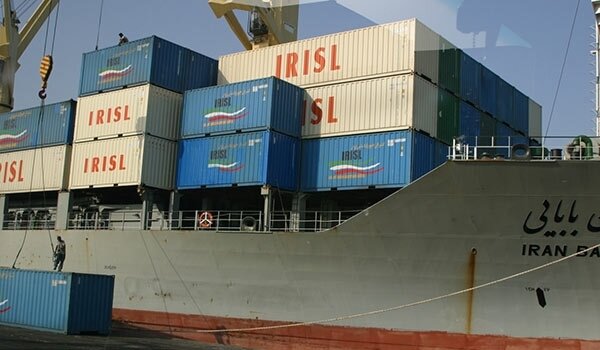Iranian maritime industry: a great capacity to be tapped

TEHRAN – Having one of the oldest and most prominent shipping lines in the region, Iran has been taking serious measures for developing its shipping industry over the past two decades; however external factors such as sanctions have been holding this industry down and preventing it from reaching its true potential.
As the country’s flag carrier group, the Islamic Republic of Iran Shipping Lines (IRISL) was reported to be the world’s 15th biggest shipping line in Alphaliner’s rankings of prominent carriers in its Feb. 16, 2021 report, with a consolidated capacity of 151,706 TEUs.
IRISL currently has 150 active vessels, of which 32 are bulk carriers, 30 are container vessels, 22 are cargo carriers of general goods, 18 are service and passenger vessels, two are Roll-on/roll-off, and three are barges.
IRISL was sanctioned by the United States, United Nations, European Union, and other parties for a long time. However, the line returned to the world market in 2016, after a nuclear deal was reached between Iran and the world powers in August 2015.
However, once again, after the United States withdrew from the nuclear deal, U.S. sanctions against IRISL were re-imposed on June 8, 2020, impeding the Iranian shipping line’s plans for becoming one of the world's top ten shipping lines by 2020.
Now the Islamic Republic is following new strategies to strengthen its maritime industry by empowering producers and by relying on domestic capacities.
Iran has all the means to become a shipping hub in West Asia, with its great geological advantages and having access to sea at both north and south of the country.
According to the Head of Iran’s Ports and Maritime Organization (PMO), considering the vacant capacity of commercial ports and the position of the national fleet, Iran has the potential to become a transshipping hub in the region and significantly increase its share of container transport.
Speaking in a ceremony on the occasion of World Maritime Day, Mohammad Rastad said: “The current government pays special attention to the development of the maritime economy and we are on the path of development in this regard.”
Rastad said that the country's potential maritime capacity is significant in terms of ocean-going fleet, adding: "At the same time, the capacity of the country's port terminals is 260 million TEU, of which only 150 million tons are used annually."
“If trade increase with the lifting of sanctions, we would be able to strengthen the country's economy by using all the vacant capacity of commercial ports and the national fleet”, he stated.
Stating that the capacity of commercial ports is beyond the current level of trade, Rastad said: "We should seek to attract more transit goods in suitable conditions and both commercial ports and container terminals to become transship hubs for regional ports."
The official noted that Iran currently has a well-developed infrastructure in the marine industry, but in order to expand in-house construction, more financial resources should be allocated to this area.
Also speaking at the same event, IRISL Head Mohammadreza Modares Khiabani said maritime transportation conducted by IRISL fleet in the first five months of the current Iranian calendar year (March 21-August 22) has increased by 43 percent compared to the previous year’s same period.
He described the sanctions as a debilitating factor in the way of IRISL activities, saying that "sanctions have made it difficult for us to supply parts for the vessels and also have significantly increased insurance costs."
All and all, with the negative impacts of the coronavirus pandemic fading away and with new economic and political horizons coming to perspective, hopes are rising that the Iranian maritime industry would finally be able to reach its true potentials.
Even if the U.S. sanctions are not removed, the Islamic Republic is strongly determined to become self-sufficient and to focus on its allies to tap into its potentials in all areas including the shipping industry.
EF/MA
